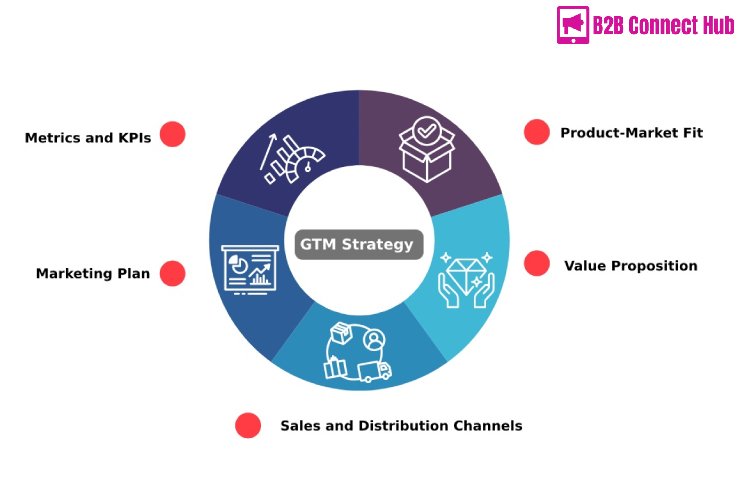In today’s competitive business landscape, a well-defined B2B go-to-market strategy is essential for companies aiming to introduce new products or services to the market. This strategy serves as a roadmap, guiding businesses on how to reach their target audience, differentiate from competitors, and achieve sustainable growth.
Understanding the B2B Go-to-Market Strategy
Key Components of a Successful Strategy
- Market Research: Conduct thorough research to understand market trends, customer needs, and the competitive landscape. This information is crucial for making informed decisions and tailoring offerings to meet market demands.
- Target Audience Identification: Define and segment the ideal customer profile. Knowing who the customers are enables businesses to tailor their messaging and approach to resonate with the audience effectively.
- Value Proposition and Messaging: Clearly articulate the unique value your product or service offers. A compelling value proposition differentiates your offerings and addresses the specific pain points of your target audience.
- Sales and Marketing Alignment: Ensure that sales and marketing teams work collaboratively. Alignment between these functions leads to cohesive strategies, efficient lead handling, and a unified customer experience.
- Channel Strategy: Determine the most effective channels to reach your target audience, whether through direct sales, partnerships, online platforms, or other distribution methods.
- Performance Metrics: Establish key performance indicators (KPIs) to monitor the effectiveness of the go-to-market strategy. Regular analysis of these metrics allows for continuous improvement and adaptation to market changes.
Implementing the Strategy
Execution is as critical as planning. Begin with a pilot program to test the strategy’s components and gather feedback. Use this data to refine your approach before a full-scale launch. Continuous monitoring and flexibility to adapt to market responses are vital for long-term success.
Conclusion
a robust B2B go-to-market strategy is a cornerstone for businesses aiming to successfully introduce their products or services to the market. By focusing on comprehensive planning, clear value propositions, and cohesive execution, companies can navigate the complexities of the market and achieve their business objectives.






